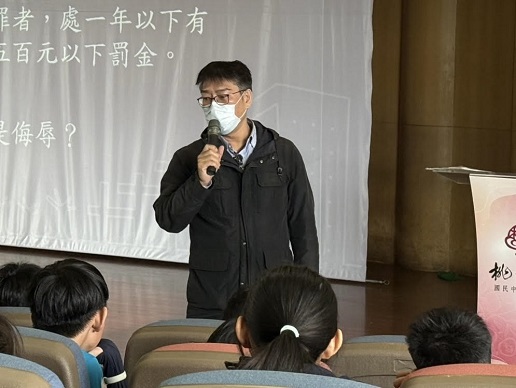In Taiwanese society, new immigrants do not need to be disadvantaged. As transnational marriages increase, the presence of new immigrants has gradually shifted from being a minority to becoming a significant and integral part of society. New immigrants inevitably face common societal issues, particularly legal disputes like any other group.
Over the years, I, Attorney Wang Song-Yuan(王松淵律師), have had the privilege of providing legal consultation services in collaboration with the New Taipei City Service Center of the National Immigration Agency, as arranged by the New Taipei Branch of the Legal Aid Foundation. This opportunity has allowed me to gain deeper insights into the legal concerns most relevant to new immigrants.
Key Legal Concerns Among New Immigrants
New immigrants’ legal concerns span various areas, including residency decisions, criminal cases such as fraud or document forgery, and disputes related to labor contracts and other agreements. However, the most prominent issues revolve around family matters arising from marital relationships, such as domestic violence, separation, divorce, child custody and support, and inheritance disputes.
Over half of the legal consultations provided to new immigrants involve marital and family-related issues, underscoring their significance. Often, due to a lack of understanding of legal provisions, new immigrants are susceptible to misinformation or unintentional influences, placing them at a disadvantage. Below, I offer several recommendations to help new immigrants understand that by leveraging available resources and understanding the legal framework, they can stand on equal footing within Taiwanese society.
Recommendation 1: Addressing Domestic Violence
New immigrants should never tolerate domestic violence. They should document evidence and file for a protection order without fear of losing their legal residency status.
Domestic violence extends beyond physical abuse to include psychological harm such as stalking, insults, or threats. Physical violence often leaves visible injuries, making evidence collection relatively straightforward. Victims should promptly report the incident to the police, seek medical treatment, and provide the police with a medical certificate as evidence during the protection order application process.
For non-physical abuse, such as verbal threats, new immigrants are encouraged to use tools like text messages, recordings, or videos to document incidents. This is crucial because new immigrants often live with their spouses’ families, who may be reluctant to testify on their behalf. Taiwanese courts rely heavily on evidence to establish facts, and without it, courts are unlikely to rule in favor of the victim unless the accused admits fault.
Additionally, new immigrants sometimes worry that filing for a protection order could jeopardize their residency. In some cases, abusive spouses might threaten to withhold support for residency extensions or confiscate their residency permits. However, victims can independently apply for residency extensions by presenting police reports or protection orders to the Immigration Agency, eliminating the need for their spouse’s cooperation. If language barriers arise, victims should request interpretation assistance at the police station.
Recommendation 2: Residency After Divorce Due to Domestic Violence
Before January 1, 2024, new immigrants who divorced their Taiwanese spouses without naturalizing could only remain in Taiwan if they were the primary caregivers of minor children with registered residency in Taiwan. Without such grounds, they were required to return to their home countries. Recognizing the unfairness of this rule for victims of domestic violence, the Immigration Agency revised the regulations. New immigrants can now apply for residency extensions after a divorce due to domestic violence, even if they have not remarried or have no minor children in Taiwan.
Recommendation 3: Residency for Non-Domestic Violence-Related Divorce
New immigrants who divorce without experiencing domestic violence can still apply for residency extensions if they have minor children with household registration in Taiwan. This requires obtaining custody or joint custody of the children. New immigrants should prioritize negotiating custody agreements during the divorce process, whether through mutual consent or court judgment, to secure their residency rights.
Recommendation 4: Utilizing Social Resources in Times of Difficulty
When facing challenges such as domestic violence or eviction, new immigrants should actively seek social resources. For instance, reporting such incidents to the police can lead to referrals for social workers who can provide temporary housing and other forms of assistance.
Many new immigrants are unaware of the extensive free social resources available in Taiwan, often due to differing practices in their home countries. Various governmental and non-governmental organizations, such as the Legal Aid Foundation, offer free legal assistance. The foundation provides legal aid for eligible cases, covering disputes related to marriage, residency, criminal cases, and contractual issues.
By scheduling an appointment and submitting the required documents, new immigrants can access free legal representation. For general legal inquiries, individuals can directly contact the foundation for consultations without undergoing an eligibility review.
Empowering New Immigrants Through Knowledge
This article aims to emphasize that new immigrants should not feel helpless or subject to unfair treatment due to unfamiliarity with Taiwan’s environment. Taiwan offers a wealth of resources accessible to everyone, including immigrants and foreign nationals. By understanding these resources and how to use them effectively, new immigrants can confidently integrate into Taiwanese society and no longer view themselves as vulnerable.
Author: Attorney Wang Song-Yuan
Legal Aid Attorney / Consultant for the New Taipei City Service Center, National Immigration Agency







